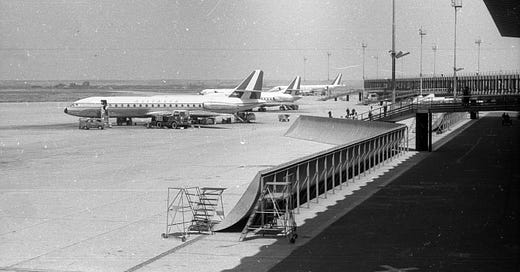Sustainable Aviation Fuels: Government Subsidies
We recently concluded a series of seven posts on the topic of Sustainable Aviation Fuels (SAFs). The following was the concluding statement.
The civil aviation industry, and society in general, is faced with three choices.
Continue with Business as Usual, i.e., maintain current passenger volumes and accept the global warming consequences.
Spend enormous amounts of money on SAF technology. These costs will have to be recovered through higher ticket prices, which it is assumed that passengers will be willing to pay because air travel is so important to them. (This seems unlikely ― after all, most flying is a discretionary activity.)
Reduce the size of the business to what it was in the 1960s.
A recent article in Hydrocarbon Processing ― U.S. admin sets path for ethanol aviation fuel subsidies ― suggests that there may be fourth response: have the government subsidize SAFs.
This approach raises many questions, including the following.
SAFs are not truly sustainable. The assumption behind their use is that the ethanol they use comes from crops which absorb the CO2 that is emitted by the jet airliners. But the growing of crops and then converting those crops to ethanol emits large amounts of CO2 that is not recovered. The proposed subsidies could actually increase greenhouse gas emissions.
Vast quantities of land are needed to grow the crops. That land is needed for growing food.
These programs are part of the ‘Net Zero by 2050’ initiatives. The year 2050 is just one generation away. We are not realistically going to convert the entire industry to SAFs in that short period of time.
Why should the ordinary tax payer be expected to subsidize an industry which is fundamentally non-sustainable and which could decline as quickly as it grew?






